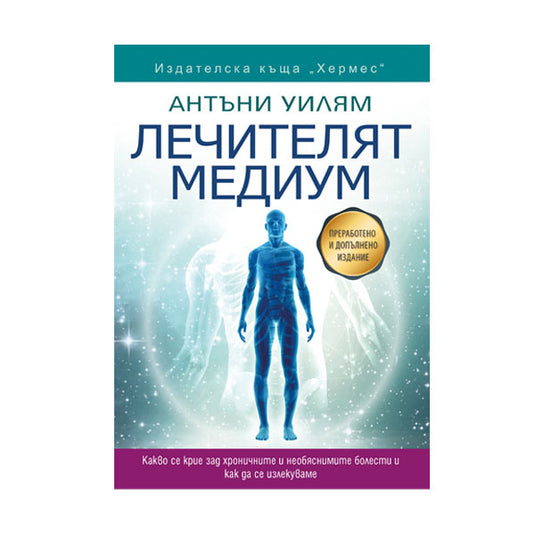In medical circles, the term rheumatoid arthritis (RA) is used as a diagnosis for a disease that causes chronic and painful inflammation of the joints. A more appropriate term would be swollen joint disease , or joint pain disease , or unexplained pain disorder . Because let's be honest: if medical research hasn't found an explanation for a certain set of symptoms, and rheumatoid arthritis hasn't yet, then it's better to call it what doctors know. Using all sorts of fancy names doesn't help anyone, least of all patients.
RA most often affects the small joints of the hands and feet. It can also affect the knees, elbows, and other large joints. Rheumatoid arthritis can also affect other parts of the body, such as the nerves, skin, mouth, eyes, lungs, and/or heart. Joint pain and swelling are the most noticeable results of this disease – over time, damage and/or deformity of the joints and bones can occur.
The medical community is unaware that the actual number of people affected by RA is higher than the global statistics indicate. Their age ranges widely, from 15 to 60 years. The disease affects five times more women than men.
Medical experts believe that rheumatoid arthritis is an autoimmune disease—a condition in which a misguided immune system mistakes parts of your body as invaders and responds by constantly attacking them. This means your body turns against you without you having a say.
The medical establishment trains doctors to use such explanations for mysterious illnesses in all cases of unexplained illness. In doing so, they give patients a false sense of security, making them feel as if their healthcare providers understand what is happening to them and why it is happening to them, making them feel as if they have some control over what is happening. This explanation for autoimmune disease does not help patients at all. When a patient builds a mental image of cells turning on each other, it sends the wrong message—they are left with the mindset that their body has betrayed them and that they cannot trust it to heal itself.
It’s crucial to know that your body doesn’t attack itself. Here’s the truth: Inflammation in your joints occurs to protect you from a particularly common virus. Your body works hard to prevent pathogens from burrowing deeper into your joints and the tissue around them. When inflammation becomes persistent and chronic, it becomes a condition known as rheumatoid arthritis (RA)—but your body is still working to protect itself from viral damage.
Doctors continue to believe that there is no cure for rheumatoid arthritis. They are wrong about that too.
In both parts of this article, we will explain what rheumatoid arthritis really is...and how you can take control and restore your health.
How to recognize rheumatoid arthritis
If you have rheumatoid arthritis, you probably suffer from a certain set of symptoms, and there's a good reason for that. These symptoms are the result of your body using its defenses to protect itself from a common viral pathogen:
- Joint pain – especially in the wrists and knuckles, knees and/or balls of the feet, but generally any joint can be affected.
- Inflammation of the joints.
- Joint stiffness, especially in the morning, which can last for hours.
- Tingling and/or numbness, especially in the hands and/or feet.
- Fluid buildup, especially in the ankles or behind the knees.
- Fatigue, fever, and other flu-like symptoms with interruptions.
- Heart palpitations.
- Burning or itching of the skin.
- A floating burning pain.
- Neuralgic pains.
Doctors use certain methods to try to identify RA, but none of them are completely definitive. Below is a list of specific tests they use. Keep in mind that they are not foolproof, as they are not designed to look for the true root cause of rheumatoid arthritis. These tests do not detect the viral pathogen that causes RA. Rather, they can serve as a guide to how much inflammation there is in the body, and even then, these guides are not always accurate in terms of the degree of inflammation in the body.
- Rheumatoid factor blood test: This tests for antibodies that doctors associate with RA. However, this test can be positive in people who are completely healthy or in people who have an unrelated condition, such as lupus. At the same time, it can be negative in people who actually have symptoms of rheumatoid arthritis. Therefore, it is not very useful.
- Anti-cyclic citrullinated peptide (anti-CCP) blood test: This newer antibody test is better at identifying cases of rheumatoid arthritis inflammation than the rheumatoid factor test, but it's still far from definitive. The question is, what does it actually detect? Because remember, they don't know the cause of RA.
- Erythrocyte sedimentation rate blood test: This checks for high levels of inflammation. There are many causes of inflammation, so this test does not accurately diagnose rheumatoid arthritis. However, it can be used to understand how severe the inflammation is; so if you have RA, it can help you gauge how aggressive it is. On the other hand, someone can have high levels of inflammation without having any symptoms.
- C-reactive protein blood test: This tests for high levels of a protein associated with active inflammation. However, this protein is also produced by other factors, including obesity. Again, inflammation alone does not determine the cause as rheumatoid arthritis.
- Ultrasound and MRI: These can be used to track inflammatory activity that has caused bone damage over time.
- MTHFR gene mutation test: This is used because it identifies a gene mutation problem that can be the cause of a number of symptoms of all sorts of diseases that are thought to be caused by inflammation. This test is far from definitive. It gives false positives for gene mutations, when in reality it simply acts as an inflammation test - just like the others on this list. Virtually anyone who has inflammation will test positive for the MTHFR gene mutation. This is a vaunted inflammation test with gene terminology attached to it. (The positive side of this test is that it shows that there is still a search for answers. While MTHFR gene mutations are not the right answers - they are not the reason people are sick - we applaud the medical community for their continued quest to find the reasons why people get sick).
Another way to determine if you have rheumatoid arthritis is to learn the truth about what this disease actually is.
Stay tuned for the continuation in the second part of the article "Anthony William talks about rheumatoid arthritis (part 2)" .














